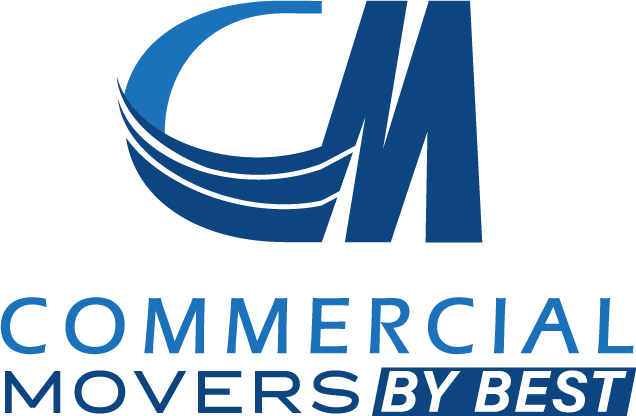Moving an office requires strategic planning and attention to detail. However, businesses often underestimate timelines, logistics, and potential disruptions, leading to costly delays and lost productivity.
With the office relocation services market expected to grow 3.3% annually to $14.6 billion by 2032, efficient planning has never been more crucial. Knowing key industry insights can help businesses avoid common mistakes, stay on track, and ensure a seamless transition to a new workspace.
Here are the top five industry secrets office movers wish you knew before you move.
Key Takeaways
✔ Early planning with office movers prevents costly last-minute challenges and ensures a smooth transition.
✔ Decluttering before the move lowers transportation costs and enhances organization in the new space.
✔ Proper handling of technology safeguards valuable equipment and minimizes downtime.
✔ Effective communication with employees and vendors reduces confusion and streamlines the relocation process.
✔ Choosing the right office movers ensures specialized handling, reliable service, and minimal disruptions.
✔ Selecting an optimal moving date helps businesses avoid peak times, reduce costs, and maintain productivity.
✔ A well-structured budget with a contingency fund helps control expenses and avoid financial surprises.
1. Planning Early Saves Time and Money
Many businesses underestimate how much time and effort an office move requires. Rushed planning can lead to overlooked details, increased costs, and operational disruptions. Experienced office movers emphasize the importance of starting the planning process early to avoid last-minute surprises.
Why Early Planning is Crucial
- Reduces Unexpected Costs: Starting early allows businesses to get accurate cost estimates and explore budget-friendly options. Office movers can help identify hidden expenses such as specialized packing materials, storage solutions, and equipment handling fees that may arise.
- Ensures Availability of Professional Office Movers: High-quality moving companies book up quickly, especially during peak seasons. Early planning gives businesses the flexibility to choose the best office movers instead of settling for limited options or paying premium rates for last-minute services.
- Minimizes Business Downtime: A well-planned move helps coordinate every phase efficiently, which ensures minimal disruption to daily operations. Businesses can schedule tasks in stages, allowing employees to continue working while office movers handle the logistics in the background.
How to Plan an Office Move Effectively
- Create a Detailed Timeline: Establishing a moving timeline with specific milestones helps keep everything on track. Office movers recommend setting deadlines for tasks such as inventory audits, packing, and IT infrastructure setup to avoid last-minute scrambling.
- Assign a Relocation Coordinator: Designating an internal team member to oversee the moving process ensures smooth communication between office movers and staff. This person can manage vendor coordination, employee updates, and problem-solving during the transition.
- Conduct a Thorough Office Assessment: Evaluating the current office setup and needs for the new space helps determine what should be moved, sold, or discarded. Office movers can also provide insights on optimizing the new layout based on workflow and space requirements.
2. Decluttering Reduces Moving Costs
Office moves present the perfect opportunity to declutter and streamline operations. Holding onto unnecessary items increases transportation costs and makes the new space feel cluttered from day one. Professional office movers recommend a thorough evaluation of what stays and what goes before the relocation begins.
Why Decluttering is Essential
- Lowers Packing and Labor Expenses: Fewer items mean fewer boxes, less packing material, and reduced labor costs. Office movers can work more efficiently when excess clutter, such as outdated paperwork and unused furniture, is cleared out in advance.
- Improves Organization at the New Location: Moving with only essential items creates a more organized and functional workspace. Businesses can take inventory of what is truly needed, allowing office movers to set up the new office without unnecessary distractions.
- Enhances Employee Productivity: A decluttered workspace promotes focus and efficiency by eliminating unused equipment and unnecessary files. Office movers suggest categorizing items by daily use, occasional use, and those that can be digitized or discarded.
How to Declutter Effectively
- Sort Items by Category: Grouping items into categories such as office supplies, electronics, and paperwork makes it easier to identify what should be kept or discarded. Office movers recommend using color-coded labels to streamline sorting and disposal.
- Digitize Documents: Scanning paper records and storing them digitally can significantly reduce the number of physical files that need to be transported. Office movers often see businesses benefit from secure cloud storage solutions like Google Drive and iCloud to minimize paper clutter.
- Donate or Sell Unneeded Items: Unused furniture, electronics, and office supplies can be donated to charities or sold to recoup some costs. Office movers can assist in coordinating pickup or disposal services to ensure a smooth decluttering process.
3. Technology Needs Special Handling
Technology is one of the most critical and sensitive aspects of any office move. Improper handling of IT equipment can result in data loss, hardware damage, and costly downtime. Professional office movers stress the importance of careful planning when it comes to relocating technology.
Why Technology Requires Extra Care
- Prevents Equipment Damage: Office movers use specialized packing techniques to protect delicate hardware, such as computers, servers, and networking devices. Bubble wrap, anti-static packaging, and custom crates help ensure items arrive safely.
- Safeguards Sensitive Data: Mishandling technology can lead to data breaches or loss if proper precautions aren’t taken. Office movers recommend backing up all data and securing hard drives separately to avoid accidental exposure.
- Ensures Quick Setup at the New Location: Proper labeling and documentation of IT assets make reinstallation faster and more efficient. Office movers often suggest creating a detailed setup plan with designated placement for each device to reduce downtime.
How to Safeguard Technology During a Move
- Conduct an IT Inventory Audit: Documenting all technology assets before the move helps track what is being relocated and what might need upgrading. Office movers can provide secure transport options for high-value IT equipment.
- Label and Organize Cables: Bundling cables with labeled tags prevents confusion during reassembly at the new office. Office movers recommend using zip ties and cable management sleeves to avoid tangling and misplacement.
- Coordinate with IT Professionals: Involving IT staff or hiring specialists ensures proper disconnection and reconnection of critical systems. Office movers can work alongside IT teams to minimize potential technical issues during the transition.
4. Communication is Key to a Smooth Transition
Lack of clear instructions and coordination can lead to confusion, delays, and frustration. Office movers stress the need for ongoing communication with employees, vendors, and stakeholders to keep everything on track.
Why Clear Communication is Critical
- Reduces Employee Confusion: Keeping staff informed about timelines, expectations, and responsibilities prevents misunderstandings. Office movers often suggest regular meetings or email updates to ensure everyone is aligned with the moving plan.
- Coordinates with External Vendors: Utilities, internet providers, and furniture suppliers need advance notice to avoid service disruptions. Office movers can assist in creating a vendor checklist to confirm all essential services are set up before moving day.
- Addresses Potential Challenges Early: Regular communication helps identify and resolve issues before they become major obstacles. Office movers recommend conducting check-ins with department heads to anticipate and address specific concerns.
How to Maintain Effective Communication
- Develop a Moving Guide for Staff: A comprehensive guide outlining moving day procedures, seating arrangements, and packing instructions can provide clarity. Office movers advise distributing this guide well in advance to ensure employees are prepared.
- Hold Weekly Progress Meetings: Frequent check-ins with key stakeholders keep the moving process on schedule. Office movers also suggest assigning department representatives to relay updates and concerns to the moving team.
- Use Collaboration Tools: Online project management tools, such as shared calendars and task lists, can help keep everyone informed. Office movers often recommend digital platforms that allow real-time updates and task tracking.
5. Choosing the Right Office Movers Matters
Selecting the right moving company in White Plains, NY, can make or break an office relocation. Not all movers have the expertise, resources, or experience to handle complex office moves. Professional office movers advise businesses to do thorough research before hiring a moving partner.
Why Hiring the Right Movers is Crucial
- Ensures Specialized Handling of Office Equipment: Experienced office movers understand how to transport delicate items such as ergonomic furniture, heavy machinery, and confidential files. Choosing an inexperienced company could lead to damages and losses.
- Provides Valuation Coverage: A reputable moving company offers comprehensive valuation coverage to protect valuable office assets during the move. It’s important to contact trusted movers like Commercial Movers By Best to confirm the terms and limitations of this coverage.
- Offers Customized Moving Solutions: Every business has unique needs, and the right office movers provide tailored solutions such as after-hours moving, temporary storage, and modular furniture installation.
How to Choose the Right Office Movers
- Check Credentials and Reviews: Verifying licensing, certifications, and customer reviews provides insight into the mover’s reliability and experience. Office movers recommend requesting references from similar businesses to ensure compatibility. For interstate moves, ensure the company is registered with the Federal Motor Carrier Safety Administration (FMCSA) and holds a valid USDOT number.
- Request a Detailed Quote: A thorough estimate that outlines all costs, including labor, transportation, and potential extras, helps avoid surprises. Office movers suggest comparing multiple quotes to find the best balance of price and service quality.
- Assess Their Experience with Office Relocations: Not all moving companies specialize in commercial moves, so asking about previous office relocation projects is crucial. Office movers with a proven track record like Commercial Movers By Best can handle complex logistics with ease.
How to Create a Realistic Budget for an Office Move Without Overspending
An office move can be a major financial undertaking. For many organizations, short distance moves are the most common type of relocation, however, even matters like this can be costly.
And without proper budgeting, costs can quickly spiral out of control. A detailed approach to expenses helps businesses avoid unexpected financial strain during the transition.
1. Identify All Potential Moving Expenses
Creating a comprehensive list of all potential costs helps businesses avoid surprises and plan accordingly. Expenses can include packing materials, labor, transportation, temporary storage, and potential fees for disconnecting and reconnecting utilities. Office movers can provide a detailed cost breakdown, which helps businesses prepare for both expected and unforeseen costs.
2. Get Multiple Quotes from Office Movers
Comparing quotes from several office movers allows businesses to find the best balance of cost and service quality. Each company may offer different pricing structures based on factors such as the complexity of the move, distance, and additional services like packing or storage. Choosing an experienced moving partner that offers a detailed and transparent quote helps prevent unexpected charges down the line.
3. Set Aside a Contingency Fund
Even the best-planned moves can encounter unexpected expenses, such as last-minute equipment needs or delays due to unforeseen circumstances. Setting aside at least 10-15% of the total budget as a contingency fund ensures that the business is financially prepared for any surprises. Office movers recommend being flexible with the budget to handle any last-minute adjustments without disrupting operations.
4. Plan for Downtime Costs
A move can temporarily disrupt business operations, leading to lost revenue and productivity. Factoring in potential downtime, including reduced employee efficiency and delayed customer service, helps businesses better manage their financial expectations. Office movers can assist in planning a phased move or after-hours relocation to minimize disruptions and control associated costs.
5. Track and Control Spending Throughout the Move
Regularly monitoring expenses during the moving process helps keep the budget in check and prevents overspending. Businesses should appoint a financial coordinator to track invoices, compare actual spending against budgeted amounts, and approve any additional costs.
How to Choose the Best Moving Date to Minimize Disruption
Selecting the right moving date is crucial to ensuring a smooth office relocation with minimal operational impact. Poor timing can lead to business downtime, logistical challenges, and higher moving costs. Working closely with experienced office movers in White Plains, NY, can help businesses make an informed decision.
1. Consider Business Peak and Off-Peak Periods
Understanding the company’s busiest and slowest times of the year helps determine the least disruptive moving window. Scheduling the move during off-peak periods, such as after major projects or seasonal rushes, ensures minimal impact on daily operations and customer service. Office movers recommend selecting a time when employee workloads are lighter to allow for smoother coordination and packing.
2. Evaluate Office Lease Agreements and Deadlines
Lease expiration dates, renewal terms, and notice periods should be carefully reviewed to align with the move. Overlapping leases can lead to unnecessary rental costs, while rushed moves due to last-minute lease terminations can create logistical headaches. Office movers can assist in planning the relocation timeline to coincide with the end of the lease, to ensure a smooth transition without financial penalties.
3. Check Office Movers’ Availability and Pricing Trends
Moving companies often have peak seasons when demand is high, such as the end of the fiscal year or the summer months. Booking early ensures access to reputable office movers and helps businesses secure better rates by avoiding last-minute pricing surges. Office movers can provide insights into the best times to move based on industry trends and scheduling flexibility.
4. Factor in Employee Availability and Workload
Employee involvement is crucial to a successful office move, so their availability should be considered when selecting a moving date. Scheduling the move around major company events, project deadlines, or holiday breaks helps prevent disruptions to productivity. It’s recommended to include employees in planning discussions to ensure their responsibilities are balanced during the transition.
5. Coordinate with Building Management Requirements
Building management policies, such as move-in restrictions, freight elevator availability, and after-hours moving rules, can significantly impact scheduling. Some buildings may only allow moves during weekends or outside regular business hours to minimize disruptions to other tenants. Office movers can help businesses navigate these regulations and plan accordingly to avoid conflicts.

Frequently Asked Questions (FAQs)
What should businesses do to ensure security during an office move?
Security is essential to protect sensitive data, equipment, and physical assets. Businesses should work with office movers who have experience handling confidential materials and can provide secure transportation solutions. Implementing security measures such as locked file containers, tracking systems, and employee oversight during packing and transport can prevent data breaches or loss. However, some providers may not provide these options, so it’s important to work with movers like Commercial Movers By Best that ensure secure and safe moves.
How can an office move affect employee morale, and what can be done to address it?
Office relocations can create uncertainty and stress among employees, affecting morale and productivity. Open communication about the moving timeline, clear expectations, and how the new space will benefit the team can help alleviate concerns. Involving employees in the moving process, such as seeking input on office layouts or offering opportunities to personalize their new workspaces, can increase engagement.
What valuation coverage should businesses consider when hiring office movers?
Valuation coverage is crucial to protect valuable office assets such as electronics, furniture, and confidential documents during transit. Businesses should verify whether office movers offer full-value protection, liability coverage, or third-party coverage options. Understanding policy limits, deductibles, and coverage exclusions helps ensure adequate protection against potential damages or losses.
How should businesses handle fragile equipment during a move?
Specialty items such as artwork, fragile electronics, or laboratory equipment require customized handling and packaging solutions. Office movers experienced in relocating delicate items can provide custom crating, climate-controlled transportation, and special handling instructions. Conducting a pre-move assessment to determine specific packing and transport requirements ensures these items arrive safely. Additionally, assigning a point person to oversee high-value assets adds an extra layer of security and accountability.
What steps should businesses take to update their address after an office move?
Updating business addresses promptly helps avoid disruptions in mail delivery, client communications, and regulatory compliance. Office movers recommend creating a checklist that includes notifying clients, vendors, financial institutions, and government agencies about the change. Updating online listings, company websites, and marketing materials ensures a seamless transition for customers and partners. Businesses should also consider setting up mail forwarding services to catch any correspondence sent to the old address.
Choose Seamless Moves with Commercial Movers by Best!
Relocating a business in White Plains, NY, requires precision, efficiency, and a team that understands the unique challenges of commercial moves. That’s where Commercial Movers by Best stands out—offering tailored solutions to minimize downtime and keep operations running smoothly. With expert planning, careful handling of office equipment, and a commitment to on-time execution, businesses can trust their move is in the hands of professionals who care.
Reach out today and experience a stress-free transition!


